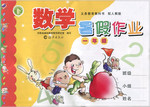题目内容
A man wanted to become wealthy. He was told a story one day that there was a ______ pebble (鹅卵石) among the pebbles on the beach of the Black Sea. It could turn everything it touched into ______. This pebble could be _____ only by touching it: unlike the other pebbles it was ______ when touched. The man rushed to the beach of the Black Sea and began to ____ the pebble.
____ he picked up a pebble that felt cold, he threw it into the sea. He____this practice day after day. Each pebble that felt cold was ____ thrown into the sea.
One morning, he _____ to take hold of a pebble that felt warm, unlike the other ______The man threw the pebble into the sea. He hadn’t ____to, but he had formed a habit.Habits can be hard to____.
In fact, if we repeat any behaviour ____ enough, it becomes a habit. But some habits can be of great help, such as ______ attitudes and healthy ways of life. Our habitual attitudes and behaviour can either _____us or hinder (阻碍) us.
Is there behaviour or an attitude you would like to make into a ______? Then reinforce (强化) it by______it at every opportunity.
When it comes to habits, _____ may not make perfect. But practice will certainly form _____ behaviour. Your habits will form who you are. So form the habits that are ____to you and let them mold (塑造) you into the person you want to be.
1.A. carved B. large C. magical D. heavy
2.A. gold B. water C. sand D. stone
3.A. created B. saved C. transformed D. recognized
4.A. smooth B. shining C. warm D. hard
5.A. search for B. look into C. make D. study
6.A. Unless B. When C. Although D. Until
7.A. continued B. developed C. tested D. analysed
8.A. luckily B. carelessly C. suddenly D. immediately
9.A. attempted B. began C. decided D. happened
10.A. hands B. trees C. pebbles D. balls
11.A. asked B. meant C. remembered D. offered
12.A. overlook B. break C. learn D. forget
13.A. often B. carefully C. fast D. calmly
14.A. related B. positive C. public D. conservative
15.A. help B. trouble C. expose D. defeat
16.A. habit B. custom C. rule D. plan
17.A. changing B. retelling C. repeating D. considering
18.A. attitude B. attempt C. guidance D. practice
19.A. violent B. bored C. permanent D. strange
20.A. devoted B. true C. familiar D. beneficial
 暑假作业海燕出版社系列答案
暑假作业海燕出版社系列答案
